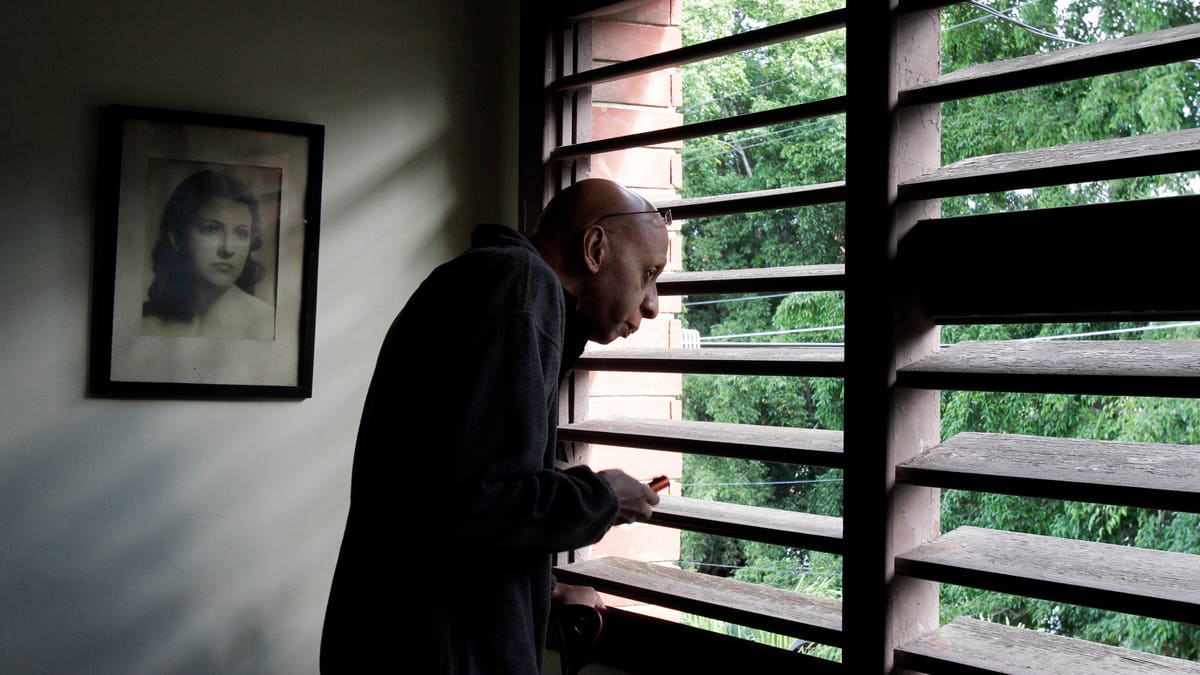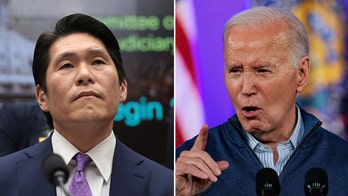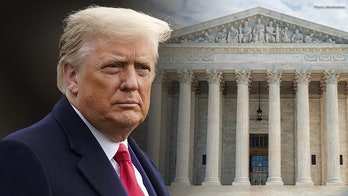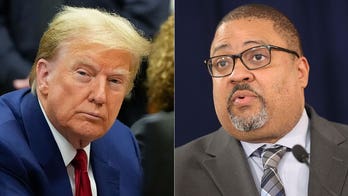
Cuba's dissident Guillermo Farinas looks out a window before a press conference in Havana, Cuba, Tuesday, Dec. 7, 2010. Farinas spent three weeks in the hospital early this year after a 134-day hunger strike to force the government to release opposition leaders jailed since 2003. (AP Photo/Franklin Reyes) (AP2010)
Guillermo Fariñas has received a special, highly coveted invitation.
He will be meeting with one of Cuba’s highest profile visitors ever – President Barack Obama.
Fariñas, a dissident who has gone on about two dozen hunger strikes, barely surviving some of them, and spent a total of about 11 years as a political prisoner, is among about a half dozen human rights activists who have been summoned to the U.S. Embassy in Havana on March 22.
Fariñas said he is looking forward to the historic event, and is pleased that Obama’s visit will include the meeting with activists who long have pushed for democratic reforms in Cuba.
“I want to urge the president not to make commitments to the Castro regime, but to the people of Cuba,” Fariñas said in a telephone interview from Havana with Fox News Latino. “The Castro regime wants to benefit financially from the new relationship with the United States, but economic deals between the two countries should directly benefit the Cuban people.”
Obama will be the first sitting U.S. president to visit Cuba since Calvin Coolidge went there in 1928. The visit comes amid dramatic changes in the relations between Cuba and the United States.
Fariñas said that among the handful of other dissidents summoned to a meeting with Obama are prominent human rights activists Berta Soler, a founder of the group Ladies in White, and Jose Daniel Ferrer. Both Soler and Ferrer reportedly were detained recently for protests against the regime.
Obama wants the decades-long trade embargo against Cuba to be lifted, but many in Congress, where Republicans have control, are opposed to removing it until Cuban President Raul Castro moves toward implementing democratic changes, including allowing freedom of speech and holding legitimate elections.
While some significant economic reforms have taken hold under Raul Castro, such as the ability of many Cubans to start businesses, the Cuban government has staunchly resisted giving its citizens freedom to do many other things.
The Castro regime continues to call for the arrest and jailing, for instance, of those who peacefully express opposition to it or to the Communist revolution.
“I would ask President Obama to push for the unconditional freedom of political prisoners, and for the right of the people in Cuba to take part in non-violent protests,” said Fariñas, who met Obama when in 2013 when he visited the United States to receive a human rights award. “We seek freedom of expression, freedom to gather, and other merely basic human rights found in any civilized society.”
Fariñas was among the many dissidents who denounced Obama’s decision to restore diplomatic relations with Cuba.
He and other dissidents maintained that Obama had promised to get their input before taking steps toward lifting U.S.-Cuba trade and travel restrictions, but instead the president did so without speaking to them. Fariñas and other dissidents have said that in many ways, the Castro regime has cracked down even more on its critics since restoring relations with the United States.
“This is still a dictatorship,” Fariñas said. “This visit by President Obama is a historic moment that will be pivotal and meaningful only if it empowers the Cuban people and the opponents of the regime. It will be an important visit, an important turning point, but only if it’s handled right.”
“The government here will try to manipulate this visit, and the changes in relations with the United States, to its benefit,” Fariñas said. “Our main goal is to ask the president to help us, help the people who have long suffered, and continue to suffer, economically and socially because of this dictatorship.”




